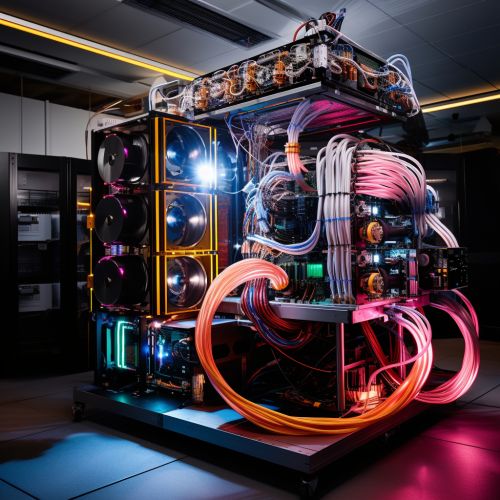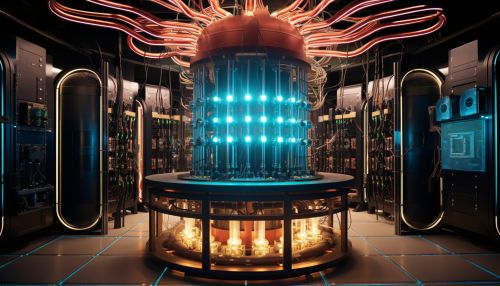Quantum algorithm
Introduction
Quantum algorithms are computational processes that harness the principles of quantum mechanics to solve problems more efficiently than classical algorithms. These algorithms exploit the unique properties of quantum bits, or qubits, such as superposition and entanglement, to perform calculations that would be infeasible or impossible with classical bits.


Quantum Bits and Quantum States
Unlike classical bits, which can be in one of two states (0 or 1), a qubit can exist in a superposition of states. This means it can be in state 0, state 1, or any combination of both. This property allows quantum computers to process a vast number of possibilities simultaneously, providing the foundation for quantum algorithms.
Quantum states are fragile and can be easily disturbed or destroyed by environmental factors, a problem known as decoherence. Quantum algorithms must therefore be designed to minimize the effects of decoherence, often through the use of quantum error correction techniques.
Quantum Gates and Circuits
Quantum algorithms are implemented using quantum gates, the basic building blocks of quantum circuits. Unlike classical gates, which perform operations on classical bits, quantum gates perform operations on qubits. These operations include the quantum logic gates such as the Pauli-X, Pauli-Y, Pauli-Z, Hadamard, phase, π/8, controlled-NOT, and SWAP gates.
Quantum circuits, like classical circuits, are used to perform complex computations. However, quantum circuits have the added advantage of being able to process multiple inputs simultaneously due to the superposition property of qubits.
Quantum Algorithms
There are several well-known quantum algorithms that demonstrate the potential power of quantum computing. These include:
- Shor's Algorithm: This algorithm, developed by Peter Shor in 1994, is a quantum algorithm for integer factorization. It can factorize large numbers exponentially faster than the best known classical algorithms, demonstrating the potential of quantum computing for solving certain types of problems.
- Grover's Algorithm: This quantum algorithm, developed by Lov Grover in 1996, is designed for searching an unsorted database or solving the unstructured search problem. It provides a quadratic speedup over classical algorithms, making it one of the best-known examples of quantum speedup.
- Quantum Fourier Transform (QFT): The QFT is a quantum version of the classical Fourier transform. It is used in many quantum algorithms, including Shor's algorithm, and can be computed exponentially faster on a quantum computer than a classical computer.
- Quantum Phase Estimation (QPE): The QPE is a quantum algorithm for estimating the phase of an eigenvalue of a unitary operator. It is a key component in many other quantum algorithms, including Shor's algorithm and quantum simulation algorithms.
Quantum Complexity Theory
Quantum complexity theory studies the resources required by quantum algorithms, such as the number of qubits and the number of quantum gates. It provides a framework for classifying problems based on their computational complexity in the quantum realm, analogous to the classical complexity theory.
Quantum Programming Languages
Quantum programming languages are used to express quantum algorithms in a form that can be executed on a quantum computer. These languages, such as Q#, Quipper, and QCL, provide high-level abstractions of quantum operations, allowing programmers to focus on the logic of the quantum algorithm without worrying about the low-level details of quantum mechanics.
Future of Quantum Algorithms
The development of quantum algorithms is an active area of research, with new algorithms and improvements to existing algorithms being discovered regularly. These algorithms have the potential to revolutionize fields such as cryptography, optimization, and simulation, among others.
However, the practical implementation of quantum algorithms is still a challenge due to the current limitations of quantum hardware, including issues with decoherence, error rates, and scalability. Overcoming these challenges will be a key focus of quantum computing research in the coming years.
